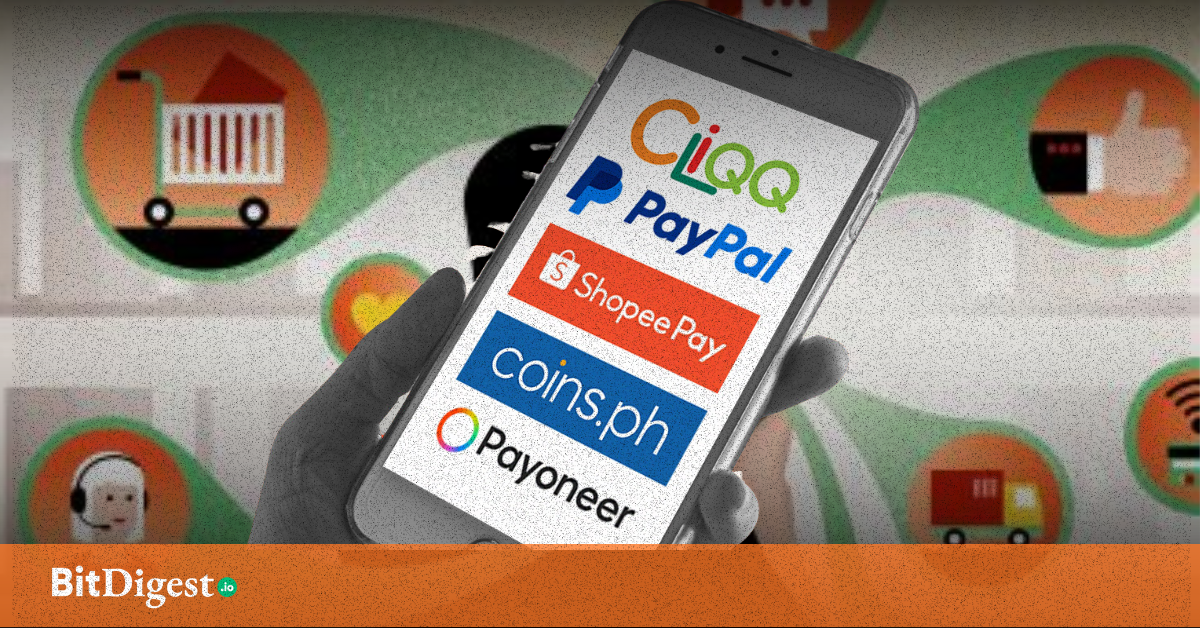Decentralizing Data Storage Through Crust Network
According to the latest statistics, approximately 5 billion people, or nearly 70% of the entire global population, are active internet users. The average time we spend using digital devices has dramatically increased to the point where a huge chunk of our daily activities, from work to social functions, now take place online. As we grow more connected digitally, data is being generated and shared faster than ever.
However, existing online storage is often dependent on a single point of control—i.e., since you don’t “own” your data, if the storage service provider decides to block your account or delete your files for failing to comply with their terms and conditions, there’s usually nothing you can do about it. Also, because you essentially rely on an intermediary to manage your stored data, you typically need to pay recurring operational costs to use their services. There is clearly a need for modern storage systems that distribute data across a global network safely and reliably—without requiring us to pay huge fees to enjoy these services.
Crust Network addresses these challenges by offering decentralized data storage solutions through blockchain. Unlike conventional cloud storage, which tends to be expensive and heavily dependent on centralized data servers, Crust gives users more control over their data. It is especially useful in developing countries that have a rapidly growing digital economy threatened by increasing data privacy concerns.
What is Crust Network?
Crust Network is a Web3 decentralized storage and data availability network. It is designed to provide everyone with access to secure, scalable, efficient, and accessible file storage and sharing. Any applications involving data storage, such as cloud services, edge computing, and decentralized applications, can operate at low cost and high performance through Crust. Its native token is CRU, which is used for transacting, staking, and participating in network governance to ensure that future directions remain aligned with the community's needs.

Key features include:
Decentralized Storage
Compared to centralized cloud storage, which most companies offer, Crust’s storage ecosystem uses a combo of edge computing and the decentralization provided by blockchain to give users more control over their data at lower cost. Instead of storing user data on a single server or cluster of storage devices, Crust Network stores data across multiple nodes worldwide.
Through this approach, even if some nodes fail or are compromised, the network still functions normally. Developers only need to integrate Crust with their dApps to have instant access to reliable on-chain storage. Users have different options for encrypted file storage to keep their data secure and accessible while retaining complete control over their online content and assets.
Omni-chain Scalability
Crust is built to handle various storage needs, from small-scale personal data to large enterprise-level storage requirements, without compromising data availability and security. Its flexible architecture supports multiple storage protocols, including the InterPlanetary File System (IPFS). It is also EVM-compatible and designed for frictionless interoperability and data access across different blockchain ecosystems.

Permissionless
Crust Network operates as a permissionless system, so users can freely join the network and perform transactions without needing prior approval from a central authority. Anyone around the world who can run compatible hardware and software can contribute their resources to the system and smart contracts distribute rewards to them in exchange for their participation. Crust also uses a decentralized governance model which lets token holders vote on proposals for network upgrades and changes.
Security and Privacy
Because of Crust’s Trusted Execution Environment (more on that later), private data remains confidential and protected even during a possible security breach.
How does Crust Network work?
Crust Network integrates several advanced technologies and protocols to provide a robust decentralized storage solution. Here's a detailed look at how it functions:
Meaningful Proof of Work (MPoW)
Crust Network uses an innovative approach called Meaningful Proof of Work (MPoW) to enhance the efficiency and security of its decentralized storage system. Traditional Proof of Work mechanisms consume much energy solving random puzzles to mine blocks without directly contributing to the network's operations.
In contrast, Crust’s MPoW focuses on performing useful tasks, such as using computing power to verify and manage data storage, instead of wasting resources on arbitrary computations. Nodes perform different storage and retrieval services, from retrieving files to local storage to exchanging files with other nodes. The workload allocated for each node is computed by the system.
Nodes are rewarded based on their actual contributions rather than on solving arbitrary puzzles. This saves resources, reduces the network’s overall energy consumption, and ensures that all participants are fairly compensated for their work. As a result, the network can scale faster and more reliably.
Guaranteed Proof of Stake (GPoS)
GPoS complements MPoW by introducing staking to enhance network security and incentivize participation. To be able to participate in the network, nodes compete to verify new blocks by staking their CRU tokens. The main difference between a typical PoS system and GPoS is that GPoS requires participants to not only stake tokens but also contribute storage resources and actively store and retrieve data. The amount of tokens a node can stake depends on how much storage space and data availability it can offer. Therefore, participants are incentivized both to contribute to the network’s collective resources as well as to secure the future of the network by committing long-term through staking.
Trusted Execution Environment (TEE)
The Trusted Execution Environment (TEE) shields data and computational processes from external security threats by providing a secure and isolated computing environment within each node in the network. Even if the rest of the system infrastructure is compromised, unauthorized entities cannot access or tamper with the data stored within the TEE. Any data processing or verification task performed within the TEE is safeguarded to ensure that each node performs its tasks correctly.
DePIN Technology
DePIN offers a community-driven alternative to company-owned physical infrastructure for electricity, computing, data storage, and other services. Instead it uses blockchain technology to manage a global peer-to-peer network that incentivizes participants to contribute by running their own hardware in exchange for crypto rewards. Since the resources are owned and controlled by the community, they don’t need to rely on centralized conglomerates—this makes any future network expansion more sustainable, flexible, and responsive to users' current needs.
Real-World Use Cases
Crust’s decentralized storage solutions are a good match for countries like the Philippines, with a fast-growing digital economy and a tech-savvy population. It offers more affordable, secure, and reliable data storage and access for different industry use cases, such as:
1. Data Security and Privacy
Crust offers multiple encryption options for keeping both public and private data secure. Decentralized data distribution creates multiple copies of the files stored online to prevent the risk of data loss and ensures data availability at all times. Since Crust Network does not rely on the servers of a single organization, the data remains accessible even if certain nodes are compromised by security breaches or down during power outages and natural disasters.
For added protection, the Trusted Execution Environment utilizes encrypted channels as well as other security mechanisms to safeguard sensitive data from being accessed by malicious programs or devices. This high level of security is particularly beneficial for individuals and businesses in the Philippines concerned about data privacy.
2. Serverless Website and DApp Deployment
DApps and sites which require constant access to media and user data often have high storage requirements that exceed their on-chain storage capacity. Existing storage options can be slow, vulnerable to risks, and expensive to integrate with Web3.
In contrast, Crust’s storage solutions are affordable and scalable, even in developing countries like the Philippines. Since Crust incentivizes multiple nodes to provide website file storage, developers can deploy websites and dApps without needing to worry about managing servers and paying high server maintenance fees.
3. Reliable Content Delivery for Various Media
Crust offers multi-purpose storage for NFT data as well as other types of files on the blockchain. Streaming sites, social networks, gaming applications, and other media platforms can use it as a high-performing content delivery network with no downtime. Its decentralized approach also reduces the costs associated with online data storage and is capable of scaling up or down depending on the current demand.
4. IoT Applications
Crust is ideal for Internet of Things (IoT) applications that constantly receive and process information in real time. Through edge computing, the data is stored in a way that is more quickly accessible to end users—whether individuals, small businesses, or enterprises. This ensures high performance and lower costs regardless of how much permanent or flexible storage is needed by network users.
Crust Network is open to users who want to make the shift from traditional, centralized data storage models to a more user-controlled, decentralized framework. Through technologies like MPoW and GPoS, Crust keeps data storage both sustainable and reliable, with less energy consumption and operational costs. Its scalable cross-chain solutions cater to different storage needs 24/7. For the Philippines, this means greater resilience and efficiency in its digital infrastructure, ensuring that the average user’s data remains fully secure and controlled by its rightful owners.
.svg)

.svg) SHARE TO FACEBOOK
SHARE TO FACEBOOK SHARE TO TWITTER/X
SHARE TO TWITTER/X SHARE TO LINKEDIN
SHARE TO LINKEDIN SEND TO MAIL
SEND TO MAIL




.svg)


.svg)